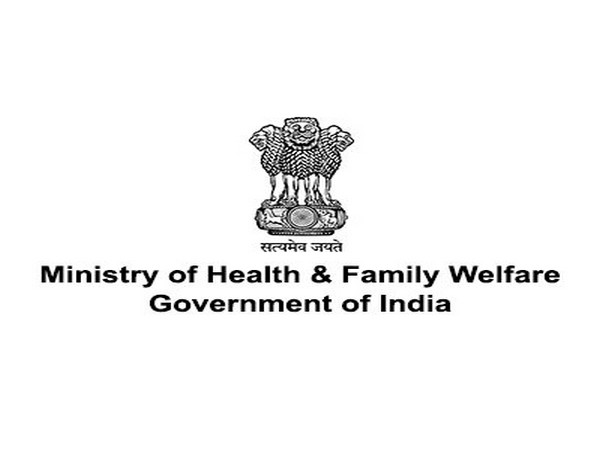India Launches Training Modules on Chemical Emergency Preparedness
Chemical emergencies, whether accidental or deliberate, pose an escalating threat to public health, environmental stability, and economic systems.

- Country:
- India
India took a major step toward strengthening its national health security framework with the release of three specialized training modules on Public Health Management of Chemical Emergencies, developed by the National Centre for Disease Control (NCDC) under the Ministry of Health and Family Welfare (MoHFW). The modules were officially launched today at Nirman Bhawan, New Delhi, by the Secretary, Health and Family Welfare, in the presence of senior officials from multiple ministries, national agencies, academia, the private sector, and the World Health Organization (WHO India).
Addressing the Growing Threat of Chemical Emergencies
Chemical emergencies, whether accidental or deliberate, pose an escalating threat to public health, environmental stability, and economic systems. With rapid industrial growth and increased use of hazardous materials in manufacturing, transportation, and urban infrastructure, the risk of chemical exposure incidents has become a pressing concern. The COVID-19 pandemic further underscored the importance of multi-sectoral preparedness and coordinated response mechanisms to safeguard human health and security.
Speaking at the launch, the Secretary emphasized that in a rapidly industrializing economy like India's, preparedness, prevention, and timely response are critical to mitigating the risks associated with chemical disasters. He underlined that the new modules would serve as a foundational resource for building capacity across all levels of the health and emergency response system.
Collaborative Development for Enhanced National Preparedness
The three modules were developed collaboratively by the NCDC, in partnership with the National Disaster Management Authority (NDMA), and with technical assistance from the World Health Organization's India Country Office. The initiative reflects India's commitment to implementing the principles of the International Health Regulations (IHR 2005), which mandate countries to strengthen their core capacities for public health emergencies, including chemical, biological, and radiological threats.
The event brought together representatives from the Ministry of Health and Family Welfare, NDMA, Central Government ministries, national institutions, state health departments, and academic experts, alongside international organizations and industry stakeholders. The joint platform symbolized a unified approach to enhancing chemical safety and emergency preparedness nationwide.
The Three Specialized Modules
The newly launched modules form a structured training framework designed to address various stages and stakeholders involved in chemical emergency management:
-
Module 1: Preparedness, Surveillance, and Response for Public Health Management of Chemical Emergencies
-
Focuses on strengthening early warning systems, inter-sectoral coordination, and rapid response frameworks.
-
Aims to integrate chemical incident management into the larger national disaster and health emergency response structures.
-
-
Module 2: Pre-Hospital Management of Chemical Emergencies
-
Designed for first responders, paramedics, and field personnel who play a vital role in minimizing exposure and providing immediate care at the incident site.
-
Covers field triage, personal protective equipment (PPE), safe evacuation, and initial decontamination procedures.
-
-
Module 3: Medical Management of Chemical Emergencies
-
Focuses on hospital-based response and clinical management of victims exposed to toxic chemicals.
-
Provides protocols for diagnosis, treatment, and supportive care, while emphasizing occupational safety for healthcare workers.
-
Collectively, these modules aim to equip public health professionals, healthcare providers, and policymakers with the practical knowledge and operational tools needed for a swift, coordinated, and evidence-based response to chemical incidents.
Strengthening National and Global Health Security
The launch of these training modules marks a significant advancement in India's pursuit of health system resilience. By focusing on both capacity-building and inter-agency coordination, the initiative supports India's broader goal of becoming a "Self-Reliant, Resilient Nation."
Officials from WHO India and NDMA commended NCDC's leadership in developing a scientific and context-specific framework to guide the country's chemical emergency management. They reiterated that such measures not only improve domestic safety but also contribute to global preparedness under WHO's Global Health Security Agenda (GHSA).
The modules will now be integrated into training programs for health officers, emergency planners, and disaster management authorities at the state and district levels. Future plans include regional workshops, simulation exercises, and the development of e-learning materials to expand accessibility and standardize response protocols across the country.
Towards a Safer and More Prepared India
The release of these modules reinforces the government's commitment to building a comprehensive, multi-sectoral chemical safety framework that ensures timely detection, response, and recovery in the event of chemical emergencies. The initiative also emphasizes the need for public awareness, continuous surveillance, and inter-agency collaboration to reduce health risks and protect communities.
As India continues its journey toward industrial modernization and economic growth, initiatives such as these serve as critical investments in national resilience—ensuring that progress is balanced with safety, preparedness, and the collective capacity to protect human life.









